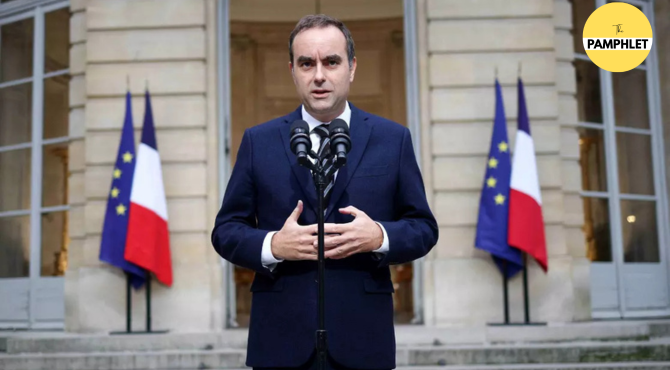France has plunged deeper into political instability as Prime Minister Sébastien Lecornu resigned on Monday, 6th October 2025, just 26 days after taking charge of the office. His resignation marks the third departure of a French Prime Minister since last December, underscoring the persistent gridlock in the country’s fractured political landscape.
Lecornu’s resignation came a day after unveiling his new cabinet, which drew widespread criticism from across the political spectrum. Opposition parties in the National Assembly had threatened to reject his government lineup, citing key appointments such as the nomination of former finance minister Bruno Le Maire as defence minister. Le Maire later withdrew his name in an attempt to ease tensions.
Despite stepping down, Lecornu accepted President Emmanuel Macron’s request to devise a “stability plan” for France by Wednesday evening, aimed at breaking the political deadlock. The Élysée Palace confirmed that Macron has given Lecornu 48 hours to explore potential compromises with political parties.
Lecornu’s appointment in September followed the collapse of François Bayrou’s government, which fell after MPs rejected his budget proposal. Bayrou had earlier replaced Michel Barnier, who was ousted in December after losing a confidence vote. Lecornu, a former minister of the armed forces and a known loyalist of Macron, was seen as the president’s last viable choice to form a stable government.
France’s political turbulence
France’s political volatility has been ongoing since July 2024, when Macron called snap parliamentary elections following his party’s poor performance in the European Parliament elections. The outcome produced a hung parliament, with ideologically divided factions unable to cooperate or form a working majority.
The growing uncertainty triggered a sharp fall in Paris stock markets on Monday, as investors expressed concern over the government’s ability to manage France’s worsening economic situation. The country’s budget deficit stood at 5.8% of GDP in 2024, with national debt reaching 114% of GDP—the third-highest in the eurozone, after Greece and Italy.
In a brief address outside the Hôtel de Matignon, Lecornu criticised the “partisan appetites” of political factions, accusing them of behaving “as if they had an absolute majority.” He said he had been open to compromise, but “all parties wanted the other to adopt their programmes in their entirety.”
What next for Macron?
New elections could further weaken Macron’s centrist bloc and are widely expected to strengthen the far-right National Rally led by Marine Le Pen. Despite mounting pressure from opposition parties calling for early elections or his own resignation, Macron has reiterated that he intends to serve out his term until 2027.
Lecornu’s departure adds to the growing list of short-lived governments in France, highlighting the country’s deep political divisions and the challenges facing Macron as he struggles to maintain stability in Europe’s second-largest economy. Or is the fall far beyond the budgetary crisis?
In recent years, France has opened its doors wider than most of Europe, embracing immigration as a mark of humanitarian leadership. But the policy has come with social tensions, cultural unease, and political backlash. From Paris to Marseille, debates over integration, identity, and national security have intensified, reshaping electoral loyalties and fuelling right-wing populism.
France’s open-door stance has deepened social divides, with many citizens feeling left behind by both economic globalization and demographic change. Critics now argue that what France faces is not just a fiscal or political crisis, but a civilizational one — a slow unraveling of national cohesion.
As Lecornu exits and Macron searches for yet another prime minister, the question remains: how long can this political theatre continue before France’s deeper fractures — economic, political, and cultural — become irreversible?









